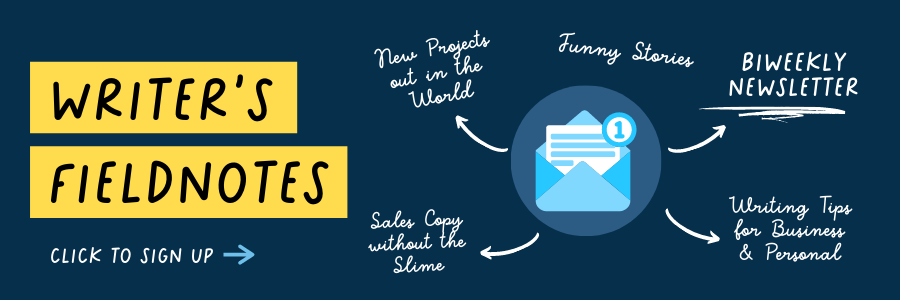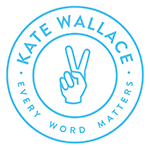Writing is hard – even pros like Stephen King say so.
The good news is that it’s not a skill reserved for great artists or rare wordsmiths. Writing well is within reach. It’s a craft you can learn.
Here’s a roundup of my top tips, the nuggets that have helped me be a better journalist, copywriter, scriptwriter and blogger.
Don’t bury your gold.
Lead with your best stuff. In journalism school, I learned about the inverted pyramid and to write stories with the most important details in the “lede.” From there, information appeared in descending importance to the end. That way, your editor can simply cut from the bottom if space is tight.
Those old-school print journalism days are practically gone, but it’s still a great way to start your story.
Show, don’t tell.
This is one of the most important, and most difficult, lessons to grasp.
Instead of saying “Budgeting is important” or “Quality is No. 1,” use examples, anecdotes, statistics and stories to bring your point to life. Look for telling details to pique your audience’s curiosity and keep their attention. The more specific, the better.
Get shorty
One thought. One sentence.
See what I did there? I made a paragraph out of two incomplete phrases.
Rather than walls of text, keep it brisk and focused. This helps keep your audience alert and engaged, with less text to wade through to get to the key points of your story.
Who cares?
Are you blogging about what your audience cares about or what YOU care about? Ideally both. When in doubt, prioritize the former. Your blog is nothing if it’s not building your brand by attracting an audience, prospects you can convert to customers.
Be direct.
Get to the point. And don’t apologize. State your thoughts with conviction. You want your audience to see the authority you have in your ideas and the strength with which you stand behind them.
Your voice should be heard – clearly.
Tighten up.
“Tighter and brighter” is my mantra, the guiding principle in all my writing. It’s easy to say, hard to do. When you’re editing, look for ways to say it shorter. Is every word necessary? That is, does it contribute to your reader’s understanding and enjoyment? If not, delete or rewrite.
Jump In
Don’t tell me what you’re doing – just do it. It’s hard enough to hold a reader’s attention, so dive into every sentence.
Instead of: “Since it’s the end of the first week of school I thought I’d write about some things that we’ve learned (or at least been reminded of) in the last few weeks.”
This is better:
“The start of the school year reminds me of how we’re always learning, and the past few weeks have been especially rich in discoveries.”
Better yet: a detailed, snappy story that shows this point in action right off the top of the post.
Eliminate redundancy
You don’t need to say, “In my opinion” or “I think” in your blog (or ever). We know it’s you and your thoughts.
Ditto time references to the present, such as “currently” or “right now.” Take them out. Readers assume you’re in the present tense unless you tell them otherwise.
Call to action
Every post needs one. What do you want your audience to do now? Sign up for your course? Download a guide? Share a pic? Comment on a social post? Answer a question?
Calls to action should be short, punchy and, well, actionable. If you want someone to do something, say it in three words or less and pop it onto an eye-grabbing button. This is essential to a smooth user experience. They should know exactly what they’re clicking for.
I hope these writing and editing tips are just the motivation you need to hone or launch your blog. If you’re having a hard time getting going, tell me about it. Email me anytime.



